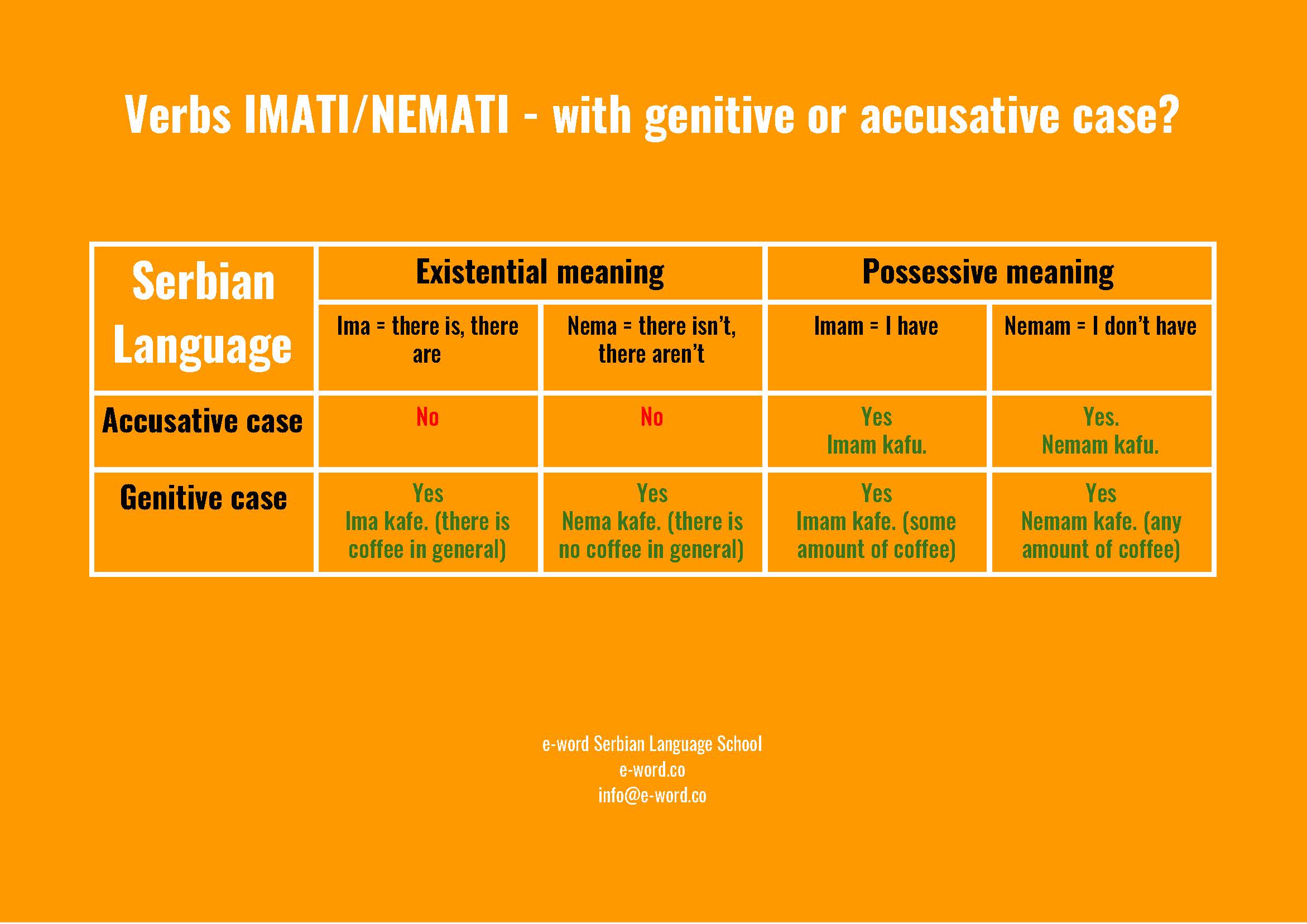The verb “IMATI” in Serbian
Verbs IMATI/NEMATI – with genitive or accusative case?
In the Serbian Language, the verb “IMATI” can have the existential meaning (there is, there are) or the possessive meaning (have). The same goes for the negative form – “NEMATI”, the existential meaning (there isn’t, there aren’t) and the possessive meaning (not to have).
FUN FACT – The negative verb form, “NEMATI” is one of the four irregular negative verb forms in Serbian (nemati – not to have, nisam – I am not, neću – I will not, nemoj – don’t). What makes these verbs irregular is the fact that they are negative, but have one-word form. All the other, regular verbs, have two-word form negation, for example: ne znam (I don’t know).
BACK TO IMATI/NEMATI: Depending on the meaning, whether it is existential or possessive, the noun that follows can be in the accusative case or genitive case. That is explained in the table, what is possible, and what not, which forms are required.

Пратите сличне теме о српском и енглеском језику и на Инстаграму!

